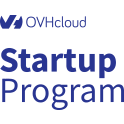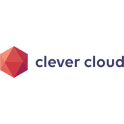30 Best Alternatives to Google Cloud in April 2024
Alternatives & Competitors to Google Cloud
- 1. Google Workspace
- 2. OVHcloud
- 3. Dropbox
- 4. AWS Activate
- 5. DigitalOcean
- 6. Typeform
- 7. Cloudflare
- 8. Microsoft Azure
- 9. LeadGen App
- 10. Scaleway
- 11. Google Drive
- 12. Microsoft PowerPoint
- 13. Firebase
- 14. OneDrive
- 15. Icloud
- 16. Microsoft for Startups
- 17. Amazon S3
- 18. Arcgis
- 19. Heroku
- 20. Fulcrumapp com
- 21. Amazon ec2
- 22. Akamai
- 23. Snowflake
- 24. Cloudally
- 25. Singlestore
- 26. IBM Cloud
- 27. Clever Cloud
- 28. Dataiku
- 29. Meet Your Data
- 30. Vaultastic
Here are competitors or alternatives to Google Cloud and other similar Cloud Computing software. You need to consider some important factors when choosing a tool like Google Cloud for your business: the main features of each solution, ease of use of user interface, pricing or value for money for instance. Each software has its pros and cons so it's up to you to choose the best alternative to Google Cloud that meets the needs of your small business. To help you compare each app and choose the right solution, we have put together a list of the best competitors of Google Cloud. Discover sofware like Google Workspace, OVHcloud, Dropbox or AWS Activate.
List of Alternatives to Google Cloud
From Cloud Computing tools, we have selected the best alternatives to Google Cloud based on reviews for each solution and similarities with Google Cloud. Of course, each solution has its benefits and drawbacks, and its own features but, whether you are a small business, a startup or a large enterprise, you will find the right choice that empowers your projects.

Description
Home to the apps that more than 3 billion users know and love – Gmail, Calendar, Drive, Meet and more. Now with Gemini for Workspace to boost productivity with AI. Try it free for 14 days.
Google Workspace compared to Google Cloud
Google Cloud has better positive reviews than Google Workspace: 96 vs 95
Google Workspace pricing plans are more competitive than Google Cloud: 4.6 vs 4.5
Google Workspace has more features than Google Cloud: 156 vs 102
Why is Google Workspace a good alternative to Google Cloud?
Google Workspace serves as an excellent alternative to Google Cloud for those seeking comprehensive productivity and collaboration tools. While Google Cloud primarily focuses on cloud infrastructure and platform services, Google Workspace offers a suite of applications for communication, collaboration, and productivity, including Gmail, Google Docs, Google Sheets, and Google Meet. It seamlessly integrates these tools to streamline work processes, making it a preferred choice for businesses and individuals looking for a complete productivity solution. Google Workspace not only enhances efficiency but also fosters real-time collaboration and communication, making it a compelling alternative to Google Cloud for those aiming to boost productivity and teamwork.
What are the differences between Google Workspace and Google Cloud?
Google Workspace and Google Cloud are distinct offerings from Google. Google Workspace is primarily a suite of productivity and collaboration tools, including Gmail, Google Drive, Google Docs, and more. It's designed for communication, document creation, and teamwork, catering to individuals and businesses. On the other hand, Google Cloud is a comprehensive cloud computing platform, providing infrastructure, storage, and a wide range of cloud services. It serves developers and businesses for hosting applications, managing data, and building scalable solutions. While Google Workspace focuses on enhancing productivity and collaboration, Google Cloud offers a more extensive set of cloud-based services and infrastructure, targeting developers and organizations with diverse cloud computing needs.
Google Workspace: Pros & Cons
Best features
-
- A professional agenda to synchronize efforts
-
- Mobile device management (MDM)
-
- Collaboration and file sharing
-
- Smooth and seamless communication
-
- An email address for each employee
-
- A storage space adapted to your needs
-
- Enhanced security and compliance
-
- A complete office suite
Google Workspace pricing
Business Standard
$12 / user / monthBusiness Plus
$18 / user / monthPopular

Description
OVH Cloud makes it possible to control your production chain, from design and development, to the deployment of your projects, websites and apps.
OVHcloud compared to Google Cloud
Google Cloud has better positive reviews than OVHcloud: 96 vs 77
Google Cloud is better at customer support than OVHcloud: 4.5 vs 4.0
Google Cloud is easier to set up than OVHcloud: 4.5 vs 4.0
OVHcloud is more suitable for small businesses thanks to its good value for money than Google Cloud: 4.6 vs 4.5
Google Cloud is better at number of features than OVHcloud: 102 vs 6
Why is OVHcloud a good alternative to Google Cloud?
OVHcloud provides a strong alternative to Google Cloud for several reasons. While Google Cloud is known for its vast array of services, OVHcloud distinguishes itself with simplicity and transparent pricing. OVHcloud offers a user-friendly interface and competitive pricing, making it attractive to startups and small businesses seeking cost-effective cloud solutions. Additionally, OVHcloud's data centers are strategically located in various regions, ensuring low-latency connections. It's a solid choice for those looking to host web applications, websites, and infrastructure with a focus on affordability and ease of use. Choosing OVHcloud as an alternative to Google Cloud can be advantageous for businesses that prioritize budget-friendly and straightforward cloud services.
What are the differences between OVHcloud and Google Cloud?
OVHcloud and Google Cloud are distinct cloud service providers. OVHcloud is known for its straightforward, budget-friendly approach, appealing to startups and small businesses. It offers a range of cloud services but emphasizes simplicity and cost-effectiveness. In contrast, Google Cloud is a comprehensive, feature-rich cloud platform with a focus on advanced tools, scalability, and high-end solutions. It caters to a wide range of businesses, including enterprises, offering a broader spectrum of services. While OVHcloud prioritizes affordability and user-friendliness, Google Cloud stands out for its extensive set of offerings and robust solutions, making it suitable for both smaller businesses and large enterprises with diverse cloud computing needs.
OVHcloud: Pros & Cons
Best features
-
- Management interface
-
- AI & Machine Learning
-
- Hosting
-
- Databases
-
- Analytics

Description
Dropbox allows your team to centralize and share files simply and quickly. You can then gain in productivity thanks to an efficient and fluid collaboration between different actors of a project.
Dropbox compared to Google Cloud
Google Cloud has better positive reviews than Dropbox: 96 vs 92
Google Cloud is better at customer support than Dropbox: 4.5 vs 4.3
Google Cloud is better at value for money than Dropbox: 4.5 vs 4.3
Google Cloud is better at number of features than Dropbox: 102 vs 89
Dropbox: Pros & Cons
Best features
-
- Store your files in the cloud
-
- Optimize storage space
-
- Collaborate in real time
-
- Share your documents easily
-
- Enjoy robust security
Dropbox pricing
Standard
$15 / user / monthProfessional
$20 / monthAdvanced
$22 / user / month
Description
Efficiently develop, deploy and maintain high-performance and scalable applications.
AWS Activate compared to Google Cloud
Google Cloud has better positive reviews compared to AWS Activate: 96 vs 85
AWS Activate is better at customer service than Google Cloud: 4.6 vs 4.5
Google Cloud is more suitable for small businesses thanks to its good value for money than AWS Activate: 4.5 vs 4.4
Google Cloud is better at number of features than AWS Activate: 102 vs 52
Why is AWS Activate a good alternative to Google Cloud?
AWS Activate is a great alternative to Google Cloud because it provides developers with the tools and resources they need to get started quickly and easily. It offers a wide range of services, products, and support to help developers build their applications in a secure environment. It also provides training and tutorials to get developers up and running quickly, as well as a variety of pricing options to help them tailor the solution to their specific needs. Finally, AWS Activate is backed by AWS's world-class customer support and ongoing innovation, so developers can rest assured that their applications will continually receive the support they need to stay successful.
What's the difference between AWS Activate and Google Cloud?
While Google Cloud Platform (GCP), a new offering from Google, is a collection of public cloud resources that focuses on high compute products like Big Query, Amazon Web Services is an established cloud service platform providing a range of services to support all kinds of IT needs.The foundational service offered by GCP is called Compute Engine. Similarly, AWS calls its...
AWS Activate: Pros & Cons
Best features
-
- Content distribution
-
- Cloud storage
-
- Machine Learning
-
- Developer tools
-
- Startup business resources
-
- Infrastructure services
-
- Computing power
-
- Mobile services
Popular

Description
Easily develop and deploy your apps in complete security. Scale your business and manage your infrastructures with confidence.
DigitalOcean compared to Google Cloud
Google Cloud has more positive reviews than DigitalOcean: 96 vs 86
Google Cloud is better at number of features than DigitalOcean: 102 vs 8
Why is DigitalOcean a good alternative to Google Cloud?
Digital Ocean provides a reliable, cost-effective and accessible cloud hosting option. It offers excellent scalability and can quickly adapt to unplanned traffic spikes and constantly changing customer needs. Since Digital Ocean offers managed services, customers are able to get fast and reliable support in a fraction of the cost of what they would need to spend on Google Cloud. Additionally, since Digital Ocean does not require in-depth technical knowledge to setup, it is a great fit for new users who want to quickly get setup and start their project.
What's the difference between DigitalOcean and Google Cloud?
When comparing DigitalOcean and Google Cloud, both platforms offer powerful cloud computing solutions tailored to different user needs and preferences. DigitalOcean is renowned for its simplicity and developer-friendly interface, making it an ideal choice for startups and small to medium-sized businesses looking for straightforward cloud solutions. On the other hand, Google Cloud stands out for its robust infrastructure and extensive suite of services, catering to enterprises and large-scale organizations with complex computing requirements.
DigitalOcean: Pros & Cons
Best features
-
- Hosting and storing
-
- Database management
-
- Tools for devs
-
- Calculation
-
- Object Storage
-
- Kubernetes
-
- Load Balancers
-
- Flexible Droplets
DigitalOcean pricing
Droplets (Virtual Machines)
$4 / monthSpaces (Object Storage)
$5 / monthVolumes (Block Storage)
$10 / monthLoad Balancers
$12 / monthKubernetes
$12 / monthDatabases (Fully Managed)
$15 / monthPopular

Description
Typeform transforms the experience of taking online forms and surveys. No more ugly old interfaces and plummeting response rates, thanks to Typeform efficiently collect the data you need.
Typeform compared to Google Cloud
Typeform has better positive reviews than Google Cloud: 97 vs 96
Typeform is better at customer support than Google Cloud: 4.8 vs 4.5
Typeform's user interface is more convenient than Google Cloud: 4.8 vs 4.5
Google Cloud is better at number of features than Typeform: 102 vs 97
Typeform: Pros & Cons
Best features
-
- Modern design
-
- Conditional logic
-
- Easy integration
-
- Interactive, no-code chatbot
-
- Customizable templates
Typeform pricing
Basic
$26 / monthPlus
$57 / monthBusiness
$93 / monthPopular

Description
The Cloudflare platform offers you a global network designed for the cloud. It secures all the devices you connect to the internet. Your business benefits from a reliable, fast and secure connection.
Cloudflare compared to Google Cloud
Cloudflare is a better solution based on percentage of positive reviews than Google Cloud: 97 vs 96
Google Cloud is a better solution for customer support than Cloudflare: 4.5 vs 4.4
Cloudflare's user interface is more convenient than Google Cloud: 4.7 vs 4.5
Cloudflare pricing plans are more competitive than Google Cloud: 4.6 vs 4.5
Google Cloud has more functions than Cloudflare: 102 vs 27
Cloudflare: Pros & Cons
Best features
-
- Increase the performance of websites and applications
-
- Secure your websites and applications
-
- Give your developers a platform
-
- Get Zero Trust Services
-
- Load balancing and traffic management
-
- Real-time analytics and reporting
-
- DDoS mitigation and WAF customization
-
- Choose a modern infrastructure

Description
Microsoft Azure empowers you to centralize and streamline your cloud-based applications and services effortlessly. Say goodbye to the complexity of managing various cloud resources individually.
Microsoft Azure compared to Google Cloud
Google Cloud is a better solution based on percentage of positive reviews than Microsoft Azure: 96 vs 85
Microsoft Azure is a better solution for customer support than Google Cloud: 4.6 vs 4.5
Google Cloud is better at value for money than Microsoft Azure: 4.5 vs 4.4
Google Cloud has more options than Microsoft Azure: 102 vs 52
What's the difference between Microsoft Azure and Google Cloud?
Microsoft Azure and Google Cloud are two market leaders in the cloud computing space, offering a wide range of technological solutions for businesses of all sizes. Both have a strong reputation for delivering reliable services. While these platforms share many similar products, it’s worth noting that Google Cloud strongly focuses on AI solutions, while Azure is renowned for its enterprise-orientated solutions.
Microsoft Azure: Pros & Cons
Best features
-
- Scalability
-
- Flexibility
-
- Hybrid capabilities
-
- Data analytics
-
- IoT solutions
-
- Azure credits
-
- DevOps integration
-
- AI and cognitive services

Description
LeadGen allows you to quickly create flexible and beautiful forms, adapted to your customer journey. Get ahead of your competitors and capture more leads from your website.
LeadGen App compared to Google Cloud
LeadGen App is a better solution based on percentage of positive reviews than Google Cloud: 100 vs 96
LeadGen App is a better solution for customer support than Google Cloud: 5.0 vs 4.5
LeadGen App is easier to set up than Google Cloud: 5.0 vs 4.5
LeadGen App is more suitable for small businesses thanks to its good value for money than Google Cloud: 4.9 vs 4.5
Google Cloud has more features than LeadGen App: 102 vs 27
Best features
-
- Collect addresses to complete your database
-
- Design and customize forms
-
- Obtain custom calculator results
-
- Create forms that are easy to complete
-
- Personalize the form experience
LeadGen App pricing
Pro
$49 / monthScale
$99 / monthEnterprise
$250 / month
Description
Scaleway provides the foundation for your startup's digital success
Scaleway compared to Google Cloud
Scaleway is a better solution based on percentage of positive reviews than Google Cloud: 100 vs 96
Scaleway is better at value for money than Google Cloud: 4.9 vs 4.5
Google Cloud has more functions than Scaleway: 102 vs 62
Scaleway: Pros & Cons
Best features
-
- Flexible pricing plans
-
- SSD-powered cloud servers
-
- Private networking
-
- Scalable storage
-
- Geographic redundancy
-
- Dedicated support
-
- Lightning-fast server deployment
-
- Simple API integration

Description
Google Drive is your secure cloud storage and collaboration hub for seamless file management and team productivity.
Google Drive compared to Google Cloud
Google Drive is a better solution based on percentage of positive reviews than Google Cloud: 98 vs 96
Google Cloud is a better solution for customer support than Google Drive: 4.5 vs 4.4
Google Drive's user interface is more convenient than Google Cloud: 4.7 vs 4.5
Google Drive pricing plans are more competitive than Google Cloud: 4.7 vs 4.5
Google Cloud has more options than Google Drive: 102 vs 29
What's the difference between Google Drive and Google Cloud?
Google Cloud is a cloud computing platform that offers a range of services for creating and deploying applications, managing data, and running virtual machines. It provides businesses and developers with the infrastructure and tools to build and expand applications in the cloud. By using Google Cloud, users can leverage computing capabilities, advanced analytics, and machine learning features. This platform is specifically designed...
Google Drive: Pros & Cons
Best features
-
- Cloud storage
-
- File sharing
-
- Real-time collaboration
-
- Integration
-
- Advanced search
-
- Version history
-
- Offline access
-
- Security features

Description
Microsoft Powerpoint is a powerful presentation software that allows users to create visually stunning and professional slide decks. With its wide range of formatting and design options, Powerpoint enables users to effectively communicate their ideas, present data, and engage their audience.
Microsoft PowerPoint compared to Google Cloud
Microsoft PowerPoint has more positive reviews than Google Cloud: 97 vs 96
Google Cloud is better at number of features than Microsoft PowerPoint: 102 vs 14
Microsoft PowerPoint: Pros & Cons
Best features
-
- User-friendly interface
-
- Customizable templates
-
- Multimedia integration
-
- Transitions and animations
-
- Slide Master
-
- Collaboration tools
-
- Presenter view
-
- SmartArt graphics

Description
With Firebase, you can easily develop apps with features like authentication, real-time database, cloud messaging, and hosting, among others. Its seamless integration and scalability make it a go-to platform for startups and established businesses looking to streamline their app development process and deliver exceptional user experiences.
Firebase compared to Google Cloud
Firebase is a better solution based on percentage of positive reviews than Google Cloud: 97 vs 96
Google Cloud has more options than Firebase: 102 vs 8
What's the difference between Firebase and Google Cloud?
Google Cloud and Firebase are different tools. As a result, they don't target the same audience and don't have the same functionality.To begin with, let's define them. Google Cloud, as its name suggests, is the cloud of the American company Google. In other words, it is a network of servers storing computing resources that can be...
Firebase: Pros & Cons
Best features
-
- Realtime database
-
- Authentication
-
- Cloud Firestore
-
- Cloud storage
-
- Cloud functions
-
- Hosting
-
- Cloud messaging
-
- Analytics and performance monitoring

Description
OneDrive is a cloud-based file storage and sharing platform that allows users to access their files anywhere, on any device. It provides value by allowing for seamless collaboration, secure file sharing, and easy access to important documents and files.
OneDrive compared to Google Cloud
Google Cloud has better positive reviews than OneDrive: 96 vs 90
Google Cloud is better at customer support than OneDrive: 4.5 vs 4.0
Google Cloud pricing plans are more competitive than OneDrive: 4.5 vs 4.4
Google Cloud is more versatile than OneDrive: 102 vs 32
OneDrive: Pros & Cons
Best features
-
- Smart sync
-
- Document review
-
- File management
-
- Data synchronization
-
- Reporting & statistics
-
- Collaboration made easy
-
- Seamless integration
-
- Anywhere access
-
- Automatic backup

Description
Icloud brings the value of simplicity and convenience to the world of data storage and syncing. With iCloud, users can easily store and access their documents, photos, videos, music, and more across all their Apple devices. It also enables seamless syncing of contacts, calendars, reminders, and notes, ensuring that users always have their important information at their fingertips. Additionally, iCloud offers backup and security features, keeping data safe and accessible even in the event of device loss or damage.
Icloud compared to Google Cloud
Google Cloud has more positive reviews than Icloud: 96 vs 93
Google Cloud is better at support than Icloud: 4.5 vs 4.4
Google Cloud pricing plans are more competitive than Icloud: 4.5 vs 4.3
Google Cloud has more options than Icloud: 102 vs 12
Icloud: Pros & Cons
Best features
-
- Seamless Cloud Storage
-
- Powerful Email Integration
-
- Robust Security
-
- Effortless Collaboration
-
- Automatic Data Backup

Description
With its Startups program, Microsoft gives a boost to startups by offering them free Azure cloud credits.
Microsoft for Startups compared to Google Cloud
Google Cloud is a better solution for customer support than Microsoft for Startups: 4.5 vs 4.0
Google Cloud is easier to set up than Microsoft for Startups: 4.5 vs 4.0
Google Cloud is more suitable for small businesses thanks to its good value for money than Microsoft for Startups: 4.5 vs 4.2
Google Cloud has more functions than Microsoft for Startups: 102 vs 73
Microsoft for Startups: Pros & Cons
Best features
-
- Business partnership
-
- Visibility and marketing
-
- Technical partnership
-
- Dedicated account manager
-
- Co-sell program
-
- Azure credits
-
- Microsoft reactors
-
- Unlimited access to Microsoft products and support

Description
Amazon S3 (Simple Storage Service) provides a secure, reliable, and scalable storage solution for businesses and individuals to store and retrieve data from anywhere at any time.
Amazon S3 compared to Google Cloud
Amazon S3 has more positive reviews than Google Cloud: 97 vs 96
Google Cloud has more features than Amazon S3: 102 vs 6
Amazon S3: Pros & Cons
Best features
-
- Multi-region replication
-
- Object tagging
-
- Intelligent-tiering
-
- Lifecycle policies
-
- Easy data migration
-
- Cost-effective
-
- High-level security
-
- Automatic scaling

Description
ArcGIS is a powerful geographic information system (GIS) software that provides a wide range of valuable features for businesses and organizations. It enables users to visualize, analyze, and interpret geographic data to make informed decisions. ArcGIS brings the following value: 1. Spatial Analysis: ArcGIS allows users to analyze data based on its location, helping them uncover patterns, trends, and relationships that would otherwise go unnoticed. This spatial analysis capability enables businesses to optimize their operations, identify growth opportunities, and solve complex problems. 2. Mapping and Visualization: ArcGIS provides advanced mapping and visualization tools to create interactive and aesthetically pleasing maps. Users can customize these maps with various layers, symbols, and labels to effectively communicate their data and insights visually. This facilitates better understanding and decision-making. 3. Data Management: With ArcGIS, businesses can efficiently manage their spatial data and keep it organized. It offers capabilities to import, store, edit, and share data across different platforms and devices. This centralized data management ensures data integrity and accessibility, enabling users to work collaboratively and make data-driven decisions. 4. Location Intelligence: ArcGIS leverages location-based data to provide location intelligence, allowing businesses to gain valuable insights into customer behavior, market trends, and demographic patterns. This information helps organizations optimize their marketing strategies, target specific customer demographics, and make informed business decisions. 5. Integration and Collaboration: ArcGIS can be easily integrated with other business systems, such as customer relationship management (CRM) and enterprise resource planning (ERP) software, allowing for seamless data exchange and workflow automation. Additionally, it provides collaboration features, allowing multiple users to work on shared projects and contribute to the decision-making process. Overall, ArcGIS brings value by empowering businesses to leverage the power of location intelligence, make better-informed decisions, improve operational efficiency, and gain a competitive edge in their respective industries.
Arcgis compared to Google Cloud
Google Cloud has better positive reviews than Arcgis: 96 vs 95
Google Cloud is better at customer support than Arcgis: 4.5 vs 4.0
Google Cloud is better at ease to use than Arcgis: 4.5 vs 4.0
Google Cloud is better at value for money than Arcgis: 4.5 vs 4.0
Arcgis has more functions than Google Cloud: 146 vs 102
Arcgis: Pros & Cons
Best features
-
- Data Visualization
-
- Advanced Mapping Capabilities
-
- Geocoding and Routing
-
- Real-Time Data Monitoring
-
- Collaboration and Sharing

Description
Heroku brings the value of simplicity, scalability, and flexibility to businesses. With Heroku, developers can easily deploy, manage, and scale their applications without worrying about infrastructure maintenance. It allows businesses to focus on building and improving their products while Heroku takes care of the underlying infrastructure.
Heroku compared to Google Cloud
Google Cloud is better at customer service than Heroku: 4.5 vs 4.0
Google Cloud is more suitable for small businesses thanks to its good value for money than Heroku: 4.5 vs 4.2
Google Cloud has more options than Heroku: 102 vs 24
Heroku: Pros & Cons
Best features
-
- PaaS (Platform as a Service)
-
- Git integration
-
- Add-ons
-
- Scalability
-
- Automatic updates
-
- Multiple programming languages
-
- Continuous Integration/Continuous Deployment (CI/CD)
-
- Logging and monitoring

Description
Fulcrumapp.com is a cloud-based mobile data collection platform that allows users to build custom apps for capturing information in the field. It offers features like geolocation, photo capture, barcode scanning, and offline data collection. The software is designed for industries like agriculture, construction, and environmental science to improve efficiency and accuracy of data collection.
Fulcrumapp com compared to Google Cloud
Fulcrumapp com has better positive reviews compared to Google Cloud: 99 vs 96
Fulcrumapp com is more suitable for small businesses thanks to its good value for money than Google Cloud: 4.6 vs 4.5
Google Cloud has more functions than Fulcrumapp com: 102 vs 67
Fulcrumapp com: Pros & Cons
Best features
-
- Data Collection
-
- Customization
-
- Offline feature
-
- Data Visualization
-
- Integration

Description
Amazon EC2 (Elastic Compute Cloud) is a web service that provides resizable compute capacity in the cloud. It's designed to make web-scale cloud computing easier for developers. Users can rent virtual computers, manage security and networking, and store data on servers. EC2 is a part of Amazon's cloud-computing platform, AWS (Amazon Web Services), which allows users to build and host their software applications on a scalable and secure platform.
Amazon ec2 compared to Google Cloud
Google Cloud has better positive reviews compared to Amazon ec2: 96 vs 91
Google Cloud is better at customer service than Amazon ec2: 4.5 vs 4.0
Google Cloud is easier to use than Amazon ec2: 4.5 vs 4.0
Google Cloud is more suitable for small businesses thanks to its good value for money than Amazon ec2: 4.5 vs 4.3
Google Cloud has more functions than Amazon ec2: 102 vs 44
Amazon ec2: Pros & Cons
Best features
-
- Scalability
-
- Variety of Instance Types
-
- Resilience
-
- User Control
-
- Speed

Description
Akamai Technologies elevates business performance by optimizing digital experiences through its cutting-edge network services. It specializes in accelerating website and application delivery, ensuring security, and providing superior cloud solutions.
Akamai: Pros & Cons
Best features
-
- Content delivery network (CDN)
-
- Cloud security solutions
-
- Web performance solutions
-
- Media delivery solutions
-
- Edge computing capabilities
-
- Mobile performance solutions
-
- Dynamic site accelerator
-
- Bot management and cybersecurity

Description
To support the development of startups, Snowflake offers a programme specially designed for them. Snowflake for Startups offers startups all the necessary elements (financial, technical, and marketing resources) to create successful applications or products via the data cloud.
Snowflake compared to Google Cloud
Google Cloud is better at customer service than Snowflake: 4.5 vs 4.2
Google Cloud is better at value for money than Snowflake: 4.5 vs 4.2
Google Cloud has more features than Snowflake: 102 vs 28
Snowflake: Pros & Cons
Best features
-
- Benefit from full support
-
- Optimize your business finances
-
- Build a product for the future
-
- Significantly improve your brand awareness
-
- Join the data cloud community
-
- Empower your data with Snowflake’s AI-powered capabilities
-
- Collaborate across multiple platforms
-
- Secure and scalable data storage

Description
CloudAlly is a cloud-based data backup and recovery solution that provides businesses with automated backups of their data across various applications such as Office 365, Google Workspace, Salesforce, and more. It ensures data security, facilitates quick recovery during data loss incidents, and supports compliance with data protection regulations.
Cloudally compared to Google Cloud
Cloudally is better at support than Google Cloud: 4.7 vs 4.5
Cloudally is more user friendly than Google Cloud: 4.6 vs 4.5
Cloudally is better at value for money than Google Cloud: 4.7 vs 4.5
Google Cloud has more functions than Cloudally: 102 vs 28
Cloudally: Pros & Cons
Best features
-
- Comprehensive Backup and Recovery
-
- Automated Daily Backups
-
- Secure Storage
-
- Robust Security Measures
-
- Excellent Customer Support

Description
SingleStore is a high-performance, in-memory database that combines the power of SQL and NoSQL. It enables fast analytics on diverse data types, supports high transaction rates and delivers real-time responses. SingleStore is scalable, efficient, and designed to process structured and semi-structured data, making it ideal for businesses seeking to improve their data-driven decision making.
Singlestore compared to Google Cloud
Google Cloud has more positive reviews than Singlestore: 96 vs 95
Google Cloud pricing plans are more competitive than Singlestore: 4.5 vs 4.2
Google Cloud has more functions than Singlestore: 102 vs 19
Singlestore: Pros & Cons
Best features
-
- High-Performance
-
- Unified Architecture
-
- Scalability
-
- Reliability Features
-
- Versatile Deployment

Description
With more than 170 products and services, IBM Cloud makes it easy to manage all your business operations from the cloud: database management, AI, blockchain, security, analytics, everything is available and easily integrated.
IBM Cloud compared to Google Cloud
Google Cloud has better positive reviews than IBM Cloud: 96 vs 92
Google Cloud is better at customer support than IBM Cloud: 4.5 vs 4.0
Google Cloud is better at ease to use than IBM Cloud: 4.5 vs 4.0
Google Cloud is better at value for money than IBM Cloud: 4.5 vs 4.0
Google Cloud has more features than IBM Cloud: 102 vs 44
Why is IBM Cloud a good alternative to Google Cloud?
IBM Cloud is a great alternative to Google Cloud for businesses that need an extensive suite of services and a complete set of tools for managing their data, applications, and infrastructure. IBM Cloud offers a wide range of cloud solutions that are customized to the needs of any business, from small to large. Furthermore, IBM Cloud offers enterprise-grade security and reliability that is trusted by many large businesses around the world. Additionally, IBM Cloud provides the capability for clients to take a more customized approach to their cloud solutions than Google Cloud, as it offers flexible pricing models to accommodate specific needs. Lastly, IBM Cloud offers comprehensive support that is tailored to the customer's specific needs, whether it's assistance with setting up the infrastructure or assistance with migrating applications.
What are the differences between IBM Cloud and Google Cloud?
IBM Cloud and Google Cloud are both leading cloud service providers. IBM Cloud provides services in areas including application development, data management, security & compliance, cloud storage and more. IBM Cloud also offers several products such as IBM Watson, IBM Blockchain, IBM IoT, and more. In contrast, Google Cloud focuses on offering analytics, networking and storage, as well as an extensive range of Big Data and Machine Learning tools. Google Cloud also provides tools for customers to develop applications faster and better, such as App Engine and Kubernetes. Both IBM Cloud and Google Cloud are designed to help customers save time and money, and provide a secure and efficient platform, but with different feature sets and services.
IBM Cloud: Pros & Cons
Best features
-
- Cloud storage
-
- Databases
-
- Developer tools
-
- Automation
-
- Security

Description
Clever Cloud is an IT Automation platform. It manages all the ops work while you focus on your business value. Design great software and make it safe.
Clever Cloud compared to Google Cloud
Clever Cloud is a better solution based on percentage of positive reviews than Google Cloud: 100 vs 96
Clever Cloud is a better solution for customer support than Google Cloud: 5.0 vs 4.5
Clever Cloud is easier to set up than Google Cloud: 5.0 vs 4.5
Clever Cloud is more suitable for small businesses thanks to its good value for money than Google Cloud: 4.6 vs 4.5
Google Cloud is more versatile than Clever Cloud: 102 vs 37
Best features
-
- Smooth deployment with zero downtime
-
- Cost-effective with pay-per-use
-
- Easy collaboration with multi-user access
-
- Customizable environment with Docker
-
- Automatic backups for peace of mind
-
- Supportive community for entrepreneurial success
-
- Effortlessly scale your business with auto-scaling
-
- Reduce your app server costs with Clever CDN

Description
With Dataiku, any team (from marketing and operations to customer service) has access to the data they need all in one place for analysis or to build and deploy predictive models — say goodbye to searching for and reconciling data across spreadsheets, databases, and service providers.
Dataiku compared to Google Cloud
Dataiku has better positive reviews than Google Cloud: 100 vs 96
Dataiku is better at ease to use than Google Cloud: 5.0 vs 4.5
Google Cloud has more features than Dataiku: 102 vs 37
Best features
-
- Advanced analytics
-
- Easily wrangle and prepare data
-
- Collaborate with your team
-
- Multiple integrations
-
- Intuitive user interface
-
- Automate data workflows
-
- Machine learning and AI capabilities
-
- Data visualization

Description
Meet Your Data acts on the whole chain of web analytics but still has preferences
Meet Your Data compared to Google Cloud
Google Cloud has better positive reviews compared to Meet Your Data: 96 vs 85
Meet Your Data is better at customer service than Google Cloud: 4.6 vs 4.5
Google Cloud is more suitable for small businesses thanks to its good value for money than Meet Your Data: 4.5 vs 4.4
Google Cloud is better at number of features than Meet Your Data: 102 vs 52
Best features
-
- Data organization made easy
-
- Intuitive data visualization
-
- Collaborate with your team like never before
-
- Real-time data monitoring
-
- Automate data tasks
-
- Secure data storage
-
- Advanced data analysis made simple
-
- Cost-effective data management

Description
Businesses gain visibility and control of critical data with Vaultastic, the agile cloud-based data management platform.
Vaultastic compared to Google Cloud
Google Cloud has more positive reviews than Vaultastic: 96 vs 86
Google Cloud is better at support than Vaultastic: 4.5 vs 4.4
Vaultastic is more user friendly than Google Cloud: 4.6 vs 4.5
Google Cloud is better at value for money than Vaultastic: 4.5 vs 4.4
Google Cloud has more options than Vaultastic: 102 vs 7
Best features
-
- On-demand Data Access
-
- Key values to customers
-
- Supervision/Oversight of activities
-
- Improve Compliance readiness
-
- Tiered Storage
-
- E-Discovery & Extraction